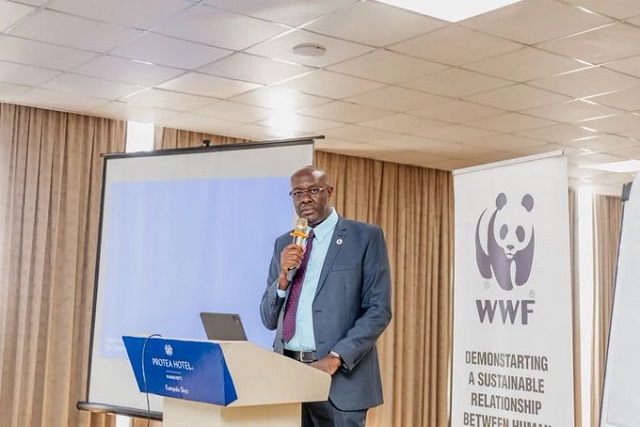
Kampala, Uganda | THE INDEPENDENT | A report by the World Wide Fund for Nature (WWF) and the Plastic Free Foundation has revealed that up to 97 percent of Ugandans want global plastic production to be reduced.
Uganda was among the 32 countries from which the global survey was conducted. The survey was aimed at establishing public opinion on proposed global rules to regulate plastic production, consumption, and management.
The report survey, conducted between August and October 2023 with up to 24,727 respondents globally, included Morocco, Nigeria, South Africa, and Uganda as the only participating African countries
. On average, the report revealed that 87 percent of the respondents globally also believe that plastic production should be reduced to save the environment.
While launching the report, Ivan Tumuhimbise, the WWF Country Director, stated that these findings are feeding into the ongoing discussion of a new global agreement to end plastic pollution, covering the full lifecycle of plastic from the extraction of oil and gas for plastic production through to design, use, and management of plastic waste, as agreed upon by up to 175 governments.
He added that the level of plastic pollution in the country, if not checked, will soon affect water resources, eventually impacting the quality of life.
“We should talk about how plastic pollution affects our water resources and the entire ecosystem of water sources because possibly in coming years, we are likely to have challenges with sufficient water to use. Each time there is pollution in the water sources, the cost of treatment skyrockets. So all these together should inform the kind of direction we want to take in addressing plastic pollution in Uganda and globally,” he said.
Emmanuel Otaala, the Chairperson of the Parliamentary Committee on Environment and Natural Resources, underscored the critical role of individual responsibility alongside governmental efforts.
“As the regulatory authority for the environment in Uganda, the National Environment Management Authority (NEMA) plays a pivotal role. However, the burden of environmental protection rests on every citizen’s shoulders.”
He further stated “While NEMA oversees environmental protection, we cannot solely rely on governmental intervention. Each citizen must strike a balance between development and safeguarding our environment.”
Moses Ategeka, a plastic manufacturer, says that plastic is not the problem, but rather how it is managed by the end users. He argues that a blanket ban on the production of single-use plastics can lead to turmoil and a standstill in business.
According to Ategeka, 93 percent of the plastics in the world are single-use plastics, therefore banning them means a ban on the entire plastic industry.
According to Ategeka, the National Environmental Management Act 2019 provides for a proper way of managing plastic, but it has not been given a chance to work because environmentalists are seeking a ban on plastic rather than effective management.
Between 2018 and 2023, Uganda produced up to 12,330 metric tons of polyethylene terephthalate (PET). It is on record that Uganda collects less than 40 percent of its plastic waste.
***
URN
 The Independent Uganda: You get the Truth we Pay the Price
The Independent Uganda: You get the Truth we Pay the Price



